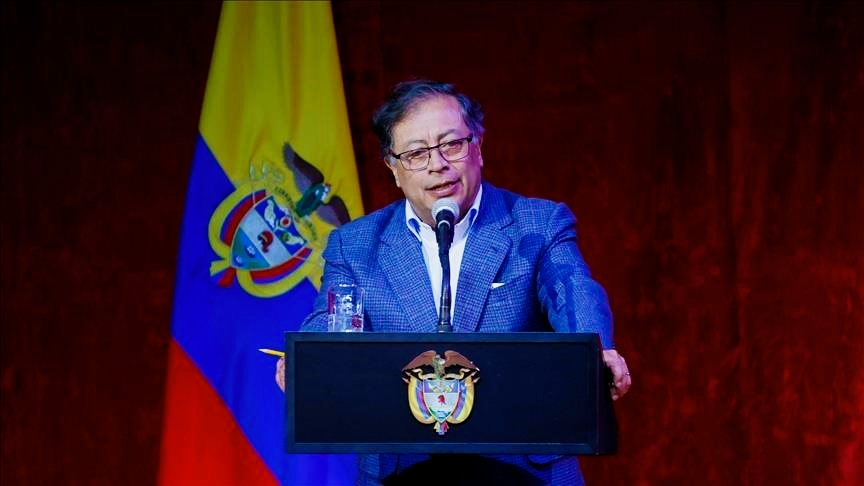Colombian President Petro Rejects U.S. Sanctions and Threatens Escalation

In a new escalation of relations between Colombia and the United States, Washington imposed sanctions on Colombian President Gustavo Petro and his family, accusing him of failing to combat drug trafficking, which provoked a sharp response from the Colombian president.
* Washington Accuses Petro of Being Lenient with Drug Trafficking
U.S. Treasury Secretary Scott Pruitt announced that the U.S. government decided to impose sanctions on the Colombian president due to his "leniency with drug cartels," noting that President Donald Trump took these actions to "protect the American nation" and not tolerate drug trafficking.
The sanctions also included listing Petro's wife and son on the same list.
* Petro Responds: "I Will Not Back Down and I Will Never Kneel"
In a swift reaction, President Petro strongly rejected these sanctions, affirming through his social media accounts: "I will not take a step back and I will never kneel."
This firm response came at a sensitive time for relations between the two countries, as Petro borrowed phrases from Latin American revolutionaries in reference to his challenge to external pressures.
* Accusation Against the United States of Executing "Extrajudicial Killings" at Sea
In another escalation, Petro accused the United States of carrying out "extrajudicial killings" as a result of military strikes it conducts on boats in the Pacific and Caribbean seas, which Washington claims target drug traffickers.
These strikes resulted in the deaths of at least 37 people and the destruction of nine boats, according to U.S. figures.
The Colombian government demanded that Washington stop these operations, which it described as "a violation of international law."
* U.S. Response: Sanctions and Threats
President Trump responded to Petro's statements with sharp criticism, describing him as a "drug trafficker," before announcing the cutting of vital military aid to Colombia.
U.S. Secretary of State Marco Rubio added to this, describing Petro as "crazy" in his statements.
* Implications for Security Cooperation
If military aid cuts are implemented, this would mean the end of decades of security cooperation between Colombia and the United States, which aimed to reduce the flow of cocaine from Colombia—the world's largest producer of this drug—to the United States, the largest consumer of it.
This cooperation included support in combating drug trafficking and internal security.
* Escalatory Positions and Calls for Dialogue
In response to U.S. actions, the Colombian government recalled its ambassador from Washington and requested to open channels of dialogue between the two countries to resolve this dispute.
This escalation came at a sensitive time for Colombia, which seeks to maintain its internal stability and protect its sovereignty from foreign interventions.
The future of relations between Colombia and the United States remains uncertain, amid this escalating tension that includes issues of security and drugs, as well as military cooperation between the two countries.